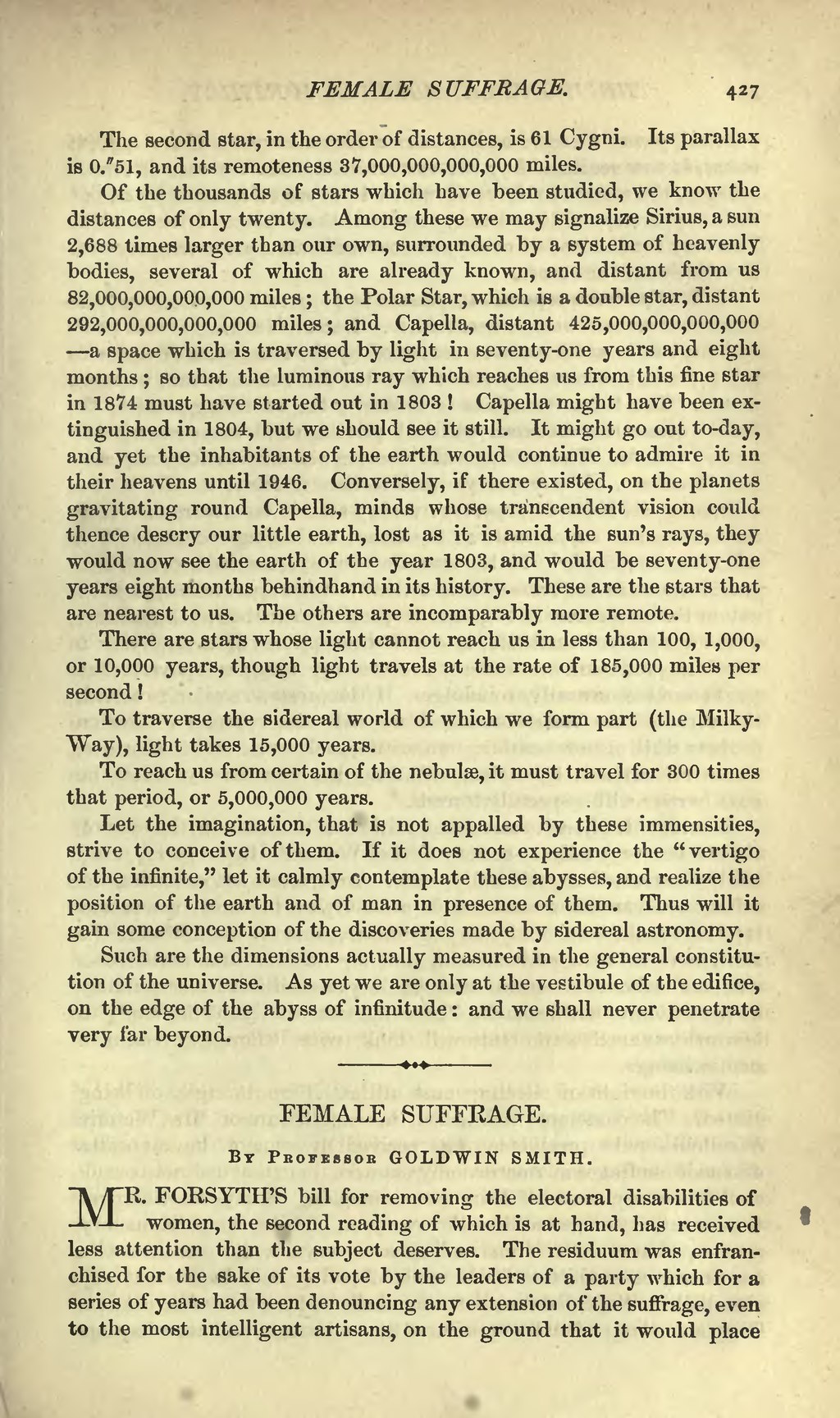The second star, in the order of distances, is 61 Cygni. Its parallax is 0."51, and its remoteness 37,000,000,000,000 miles.
Of the thousands of stars which have been studied, we know the distances of only twenty. Among these we may signalize Sirius, a sun 2,688 times larger than our own, surrounded by a system of heavenly bodies, several of which are already known, and distant from us 82,000,000,000,000 miles; the Polar Star, which is a double star, distant 292,000,000,000,000 miles; and Capella, distant 425,000,000,000,000—a space which is traversed by light in seventy-one years and eight months; so that the luminous ray which reaches us from this fine star in 1874 must have started out in 1803! Capella might have been extinguished in 1804, but we should see it still. It might go out to-day, and yet the inhabitants of the earth would continue to admire it in their heavens until 1946. Conversely, if there existed, on the planets gravitating round Capella, minds whose transcendent vision could thence descry our little earth, lost as it is amid the sun's rays, they would now see the earth of the year 1803, and would be seventy-one years eight months behindhand in its history. These are the stars that are nearest to us. The others are incomparably more remote.
There are stars whose light cannot reach us in less than 100, 1,000, or 10,000 years, though light travels at the rate of 185,000 miles per second!
To traverse the sidereal world of which we form part (the Milky-Way), light takes 15,000 years.
To reach us from certain of the nebulæ, it must travel for 300 times that period, or 5,000,000 years.
Let the imagination, that is not appalled by these immensities, strive to conceive of them. If it does not experience the "vertigo of the infinite," let it calmly contemplate these abysses, and realize the position of the earth and of man in presence of them. Thus will it gain some conception of the discoveries made by sidereal astronomy.
Such are the dimensions actually measured in the general constitution of the universe. As yet we are only at the vestibule of the edifice, on the edge of the abyss of infinitude: and we shall never penetrate very far beyond.
| FEMALE SUFFRAGE. |
By Professor GOLDWIN SMITH.
MR. FORSYTH'S bill for removing the electoral disabilities of women, the second reading of which is at hand, has received less attention than the subject deserves. The residuum was enfranchised for the sake of its vote by the leaders of a party which for a series of years had been denouncing any extension of the suffrage, even to the most intelligent artisans, on the ground that it would place

